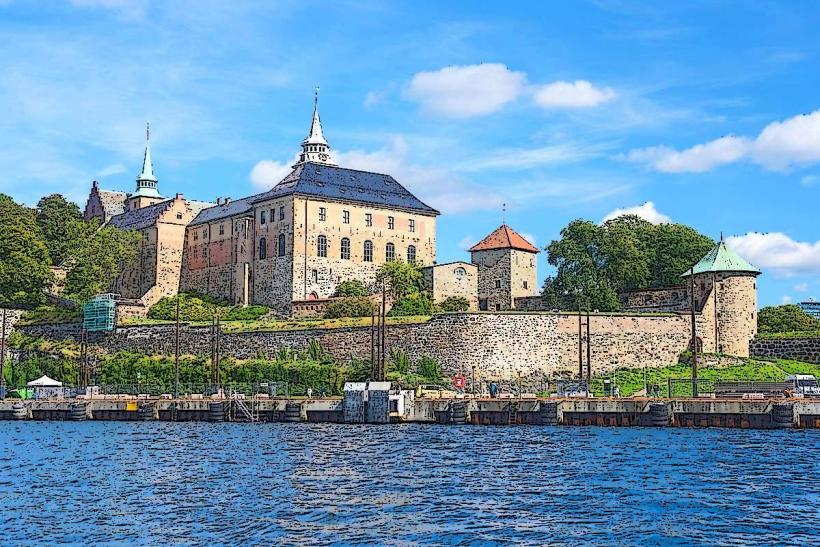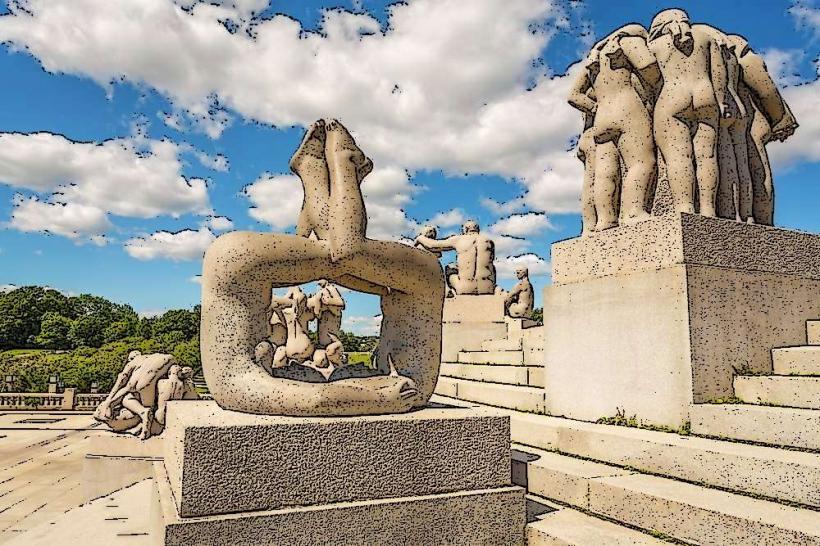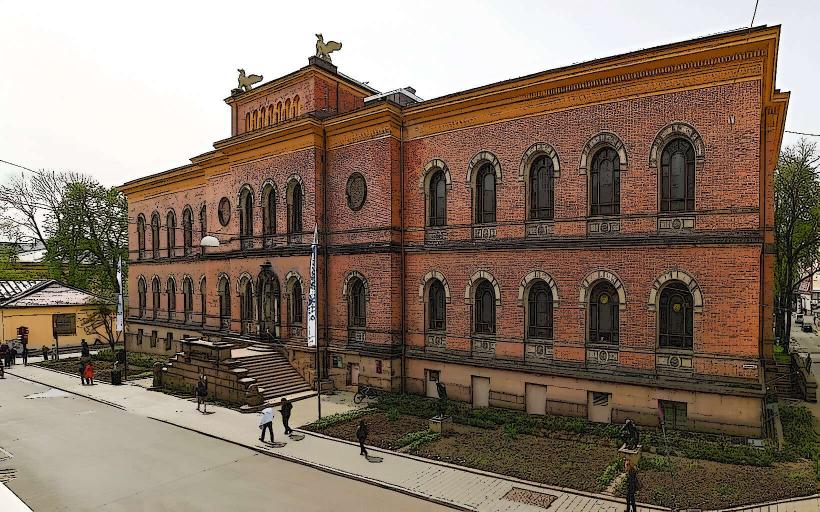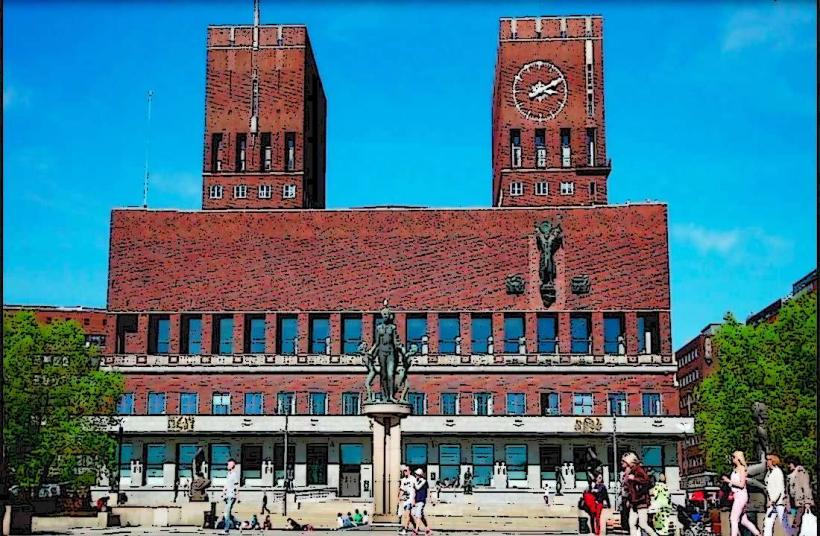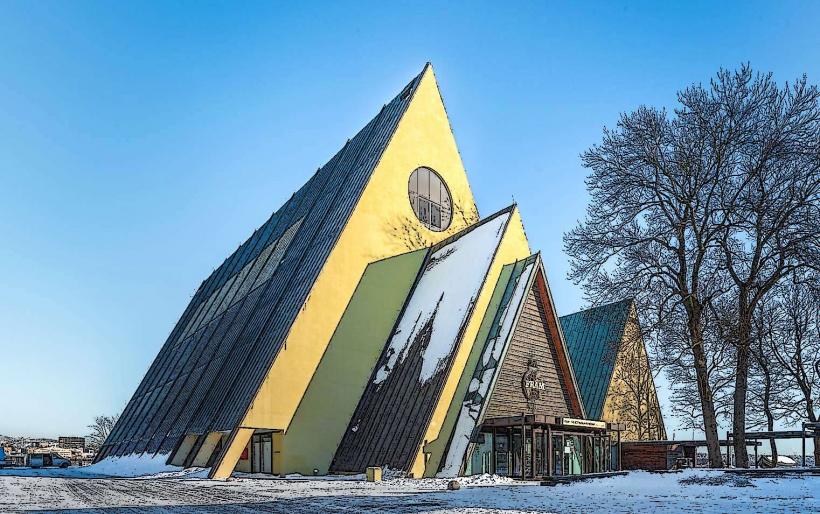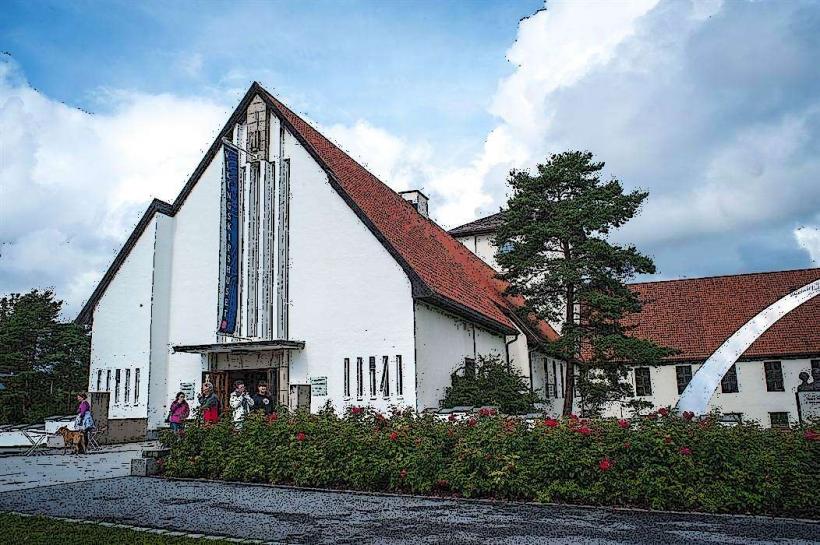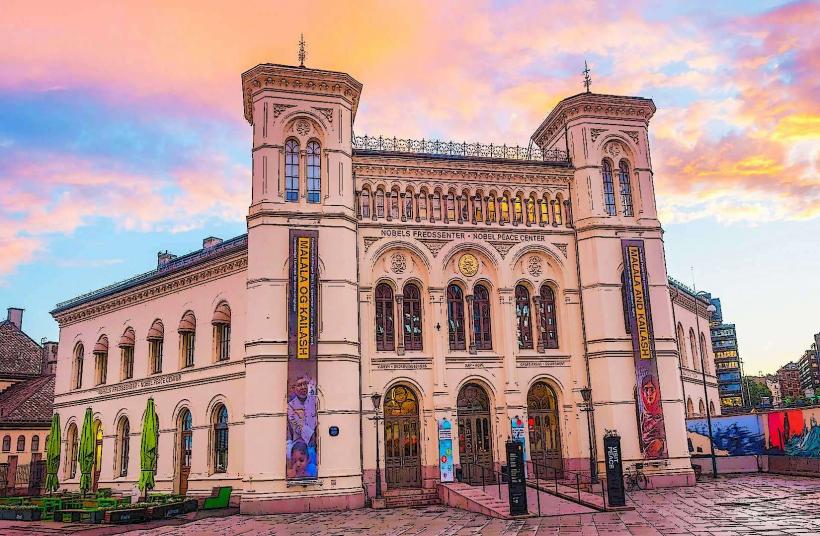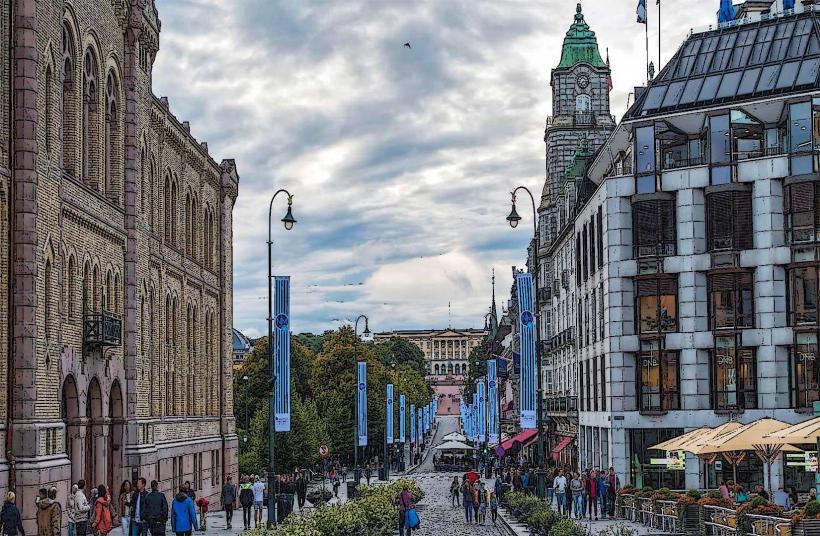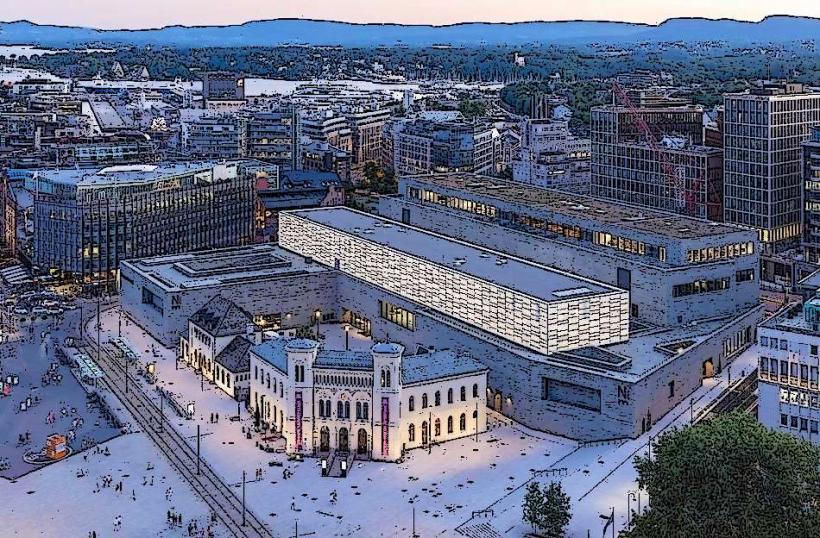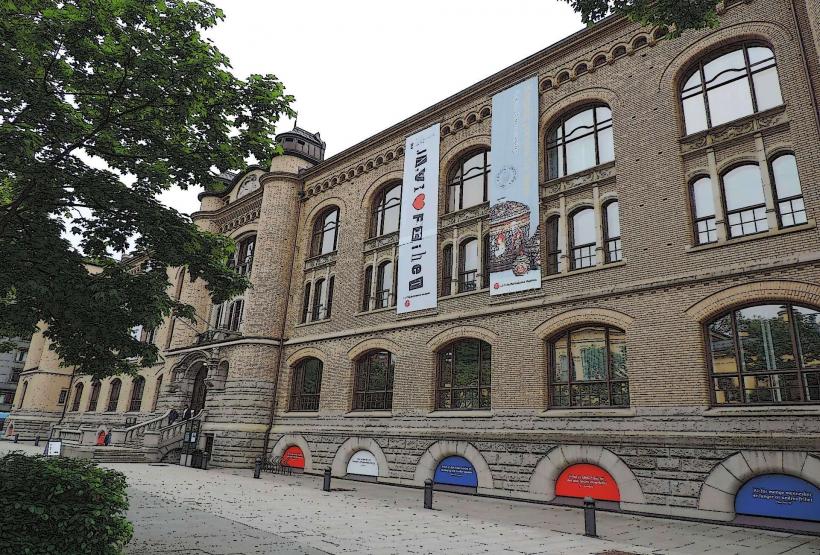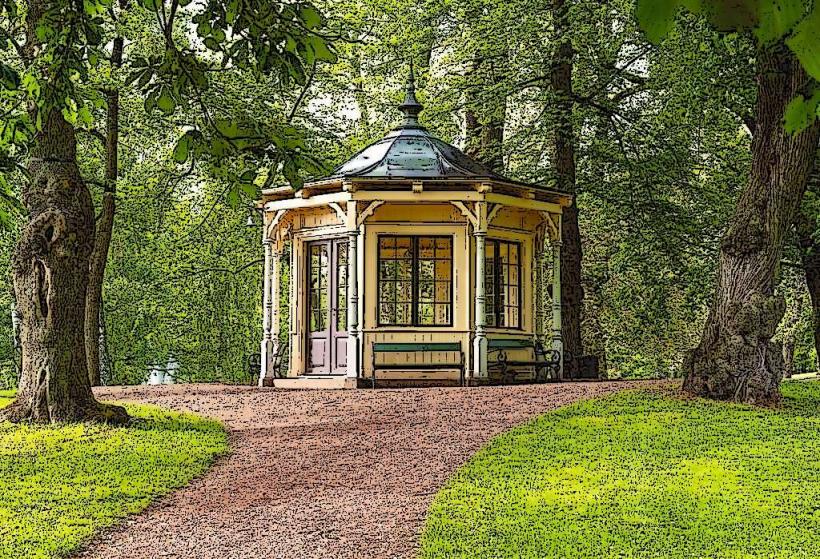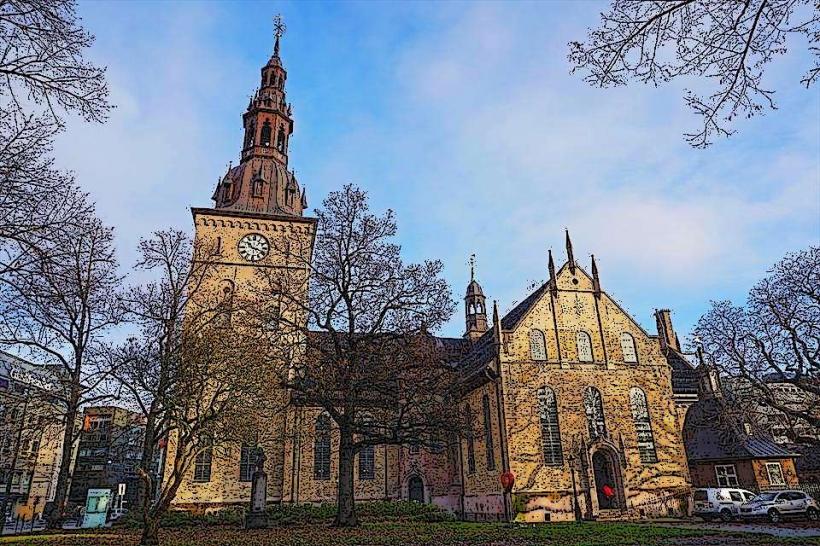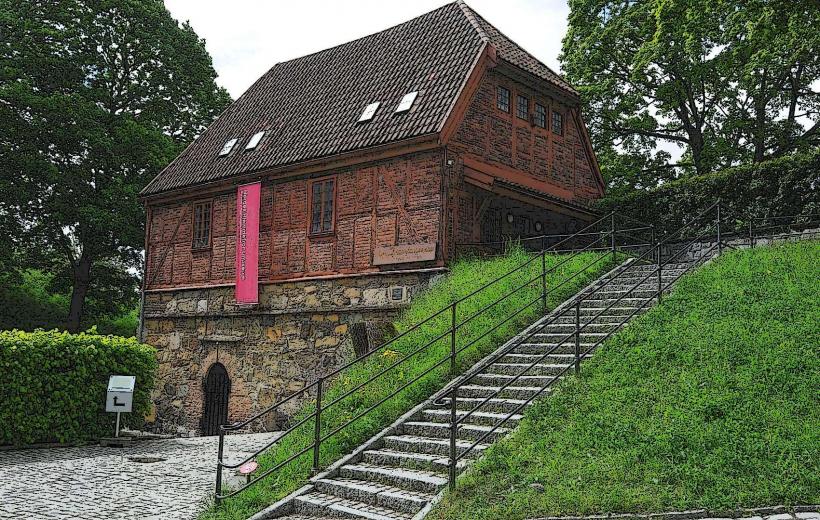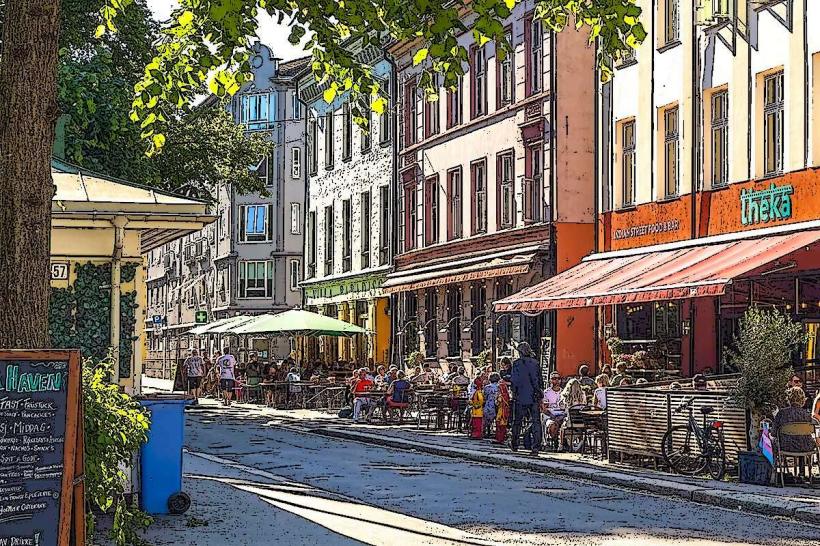Information
Landmark: Ibsen MuseumCity: Oslo
Country: Norway
Continent: Europe
The Ibsen Museum in Oslo is dedicated to the life and work of Henrik Ibsen, one of the most influential playwrights in history. The museum is located in the house where Ibsen lived for the last 11 years of his life, at Henrik Ibsens gate 26 in Oslo. It provides visitors with a unique glimpse into the personal and creative life of Ibsen, whose works revolutionized modern drama.
History and Background
- Henrik Ibsen (1828–1906) is often regarded as the father of modern drama. His plays, such as A Doll’s House, Hedda Gabler, and Peer Gynt, have had a profound impact on theater, exploring complex social and psychological issues. Ibsen spent the last years of his life in this house in Oslo, where he wrote some of his final works.
- The Ibsen Museum opened in 2006 and is housed in the building where Ibsen lived from 1895 until his death in 1906. The museum was established to honor his legacy and offer insight into his life, the cultural context in which he wrote, and the personal circumstances that influenced his work.
Key Features and Exhibits
Ibsen’s Home:
- The museum is located in Ibsen’s former residence, and many rooms have been preserved in their original state, offering visitors a chance to step into the world of the playwright as he lived in his final years. The apartment is a beautiful example of late 19th-century architecture and interior design, and it remains largely unchanged since Ibsen’s time.
- The house includes a living room, study, library, and bedrooms, with original furnishings and decorations. Visitors can explore Ibsen’s living space, where he worked, wrote, and entertained guests. The study, in particular, offers a view of the writer's daily life and his relationship with his work.
Personal Artifacts:
- The museum displays a variety of personal artifacts related to Ibsen, including his writing desk, manuscripts, letters, and photographs. These items offer a closer look at his life and creative process.
- Ibsen’s handwritten manuscripts of famous works, as well as first editions of his plays, are displayed alongside other personal mementos, such as his glasses, clothing, and books. These items give visitors a sense of the writer's personality and his dedication to his craft.
Ibsen’s Work and Legacy:
- The museum includes exhibits that focus on Ibsen’s dramatic works and their influence on modern theater. Interactive displays and multimedia installations explore the major themes of Ibsen’s plays, such as individualism, social critique, and gender roles.
- Visitors can learn about how Ibsen's works challenged societal norms and explored taboo subjects, changing the course of theater history. The museum also covers the global impact of Ibsen’s plays and how they continue to influence contemporary theater and culture.
The Ibsen Collection:
- The museum houses an extensive collection of Ibsen-related items, including rare editions of his plays, books, and periodicals from his time. There are also photographs and posters related to the many productions of Ibsen’s plays worldwide, highlighting his enduring popularity.
- The Ibsen Collection offers visitors a deeper understanding of Ibsen's international significance and his role in the global development of modern theater.
Special Exhibitions:
- In addition to the permanent displays, the museum hosts temporary exhibitions that explore specific themes related to Ibsen’s life and works. These exhibitions might cover aspects such as Ibsen’s relationships with contemporaries, his travels abroad, or the social and political contexts of his plays.
- Thematic exhibitions also explore the social issues Ibsen addressed in his works, such as women’s rights, marriage, mental illness, and political freedom. These exhibitions often draw connections between Ibsen’s work and modern-day social issues.
Guided Tours and Programs:
- The Ibsen Museum offers guided tours, which provide in-depth information about Ibsen’s life, his writing process, and the historical context of his work. The guides often share fascinating stories about Ibsen’s time in the house and the people who influenced or were influenced by him.
- The museum also organizes lectures, performances, and workshops that delve into Ibsen’s life and works. These events are aimed at a wide range of audiences, from theater enthusiasts to scholars and students.
Other Facilities
Museum Shop:
- The Ibsen Museum features a museum shop that sells books about Henrik Ibsen, including his complete works, as well as other related materials. Visitors can purchase Ibsen-related souvenirs, such as postcards, prints, and artworks that reflect the themes of his plays.
Café:
- The museum has a small café, offering a place to relax and reflect after exploring the exhibits. The café serves coffee, light refreshments, and Norwegian pastries, allowing visitors to unwind in a historical atmosphere.
Conclusion
The Ibsen Museum offers an intimate and educational experience for those interested in the life and legacy of Henrik Ibsen. The museum provides a rare opportunity to step into the writer's personal space and learn about his most important works in the very setting where he created them. With its collection of personal artifacts, dramatic manuscripts, and interactive exhibits, the museum is a must-visit for theater enthusiasts, Ibsen scholars, and anyone interested in Norwegian cultural history.
Whether you're exploring Ibsen’s home, learning about his social impact, or attending a special event, the Ibsen Museum offers a fascinating and informative journey into the life and works of one of the greatest playwrights in history.



